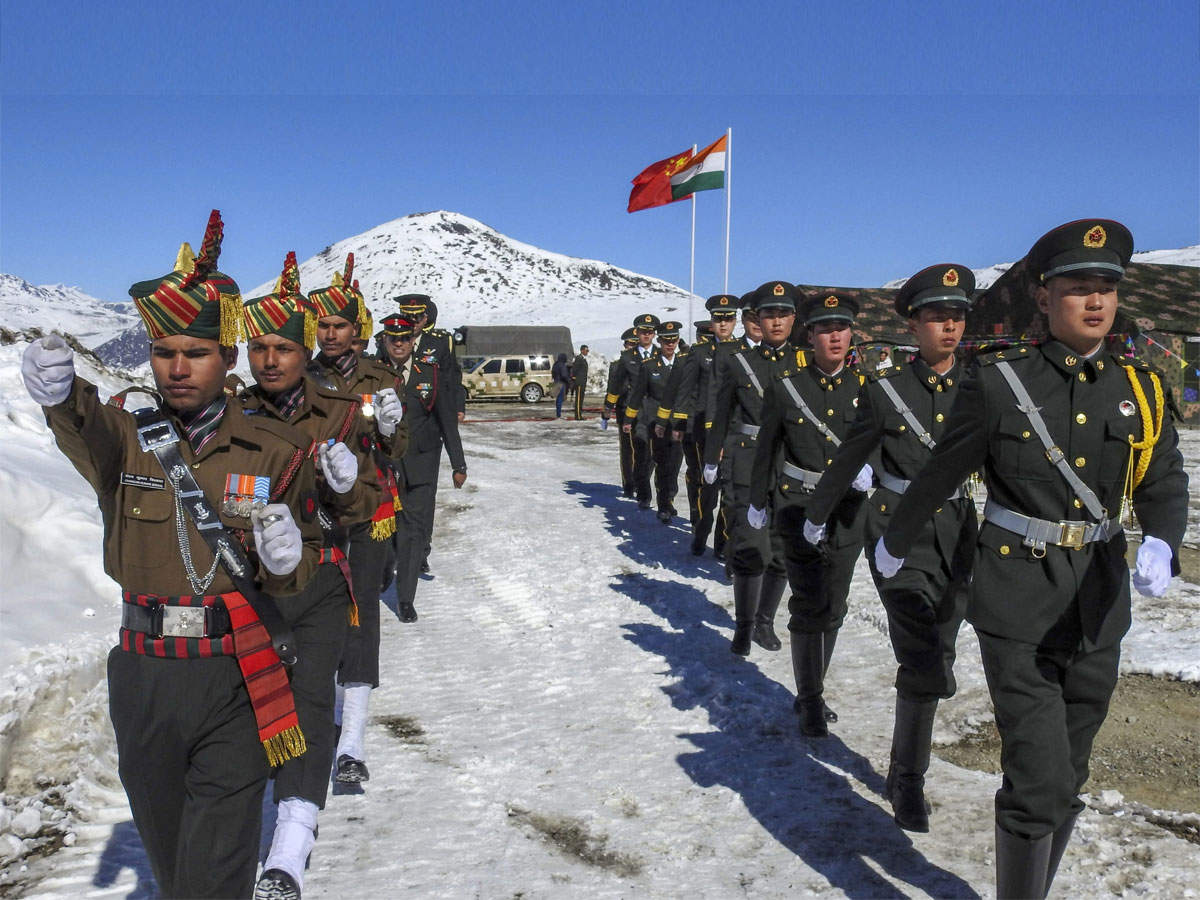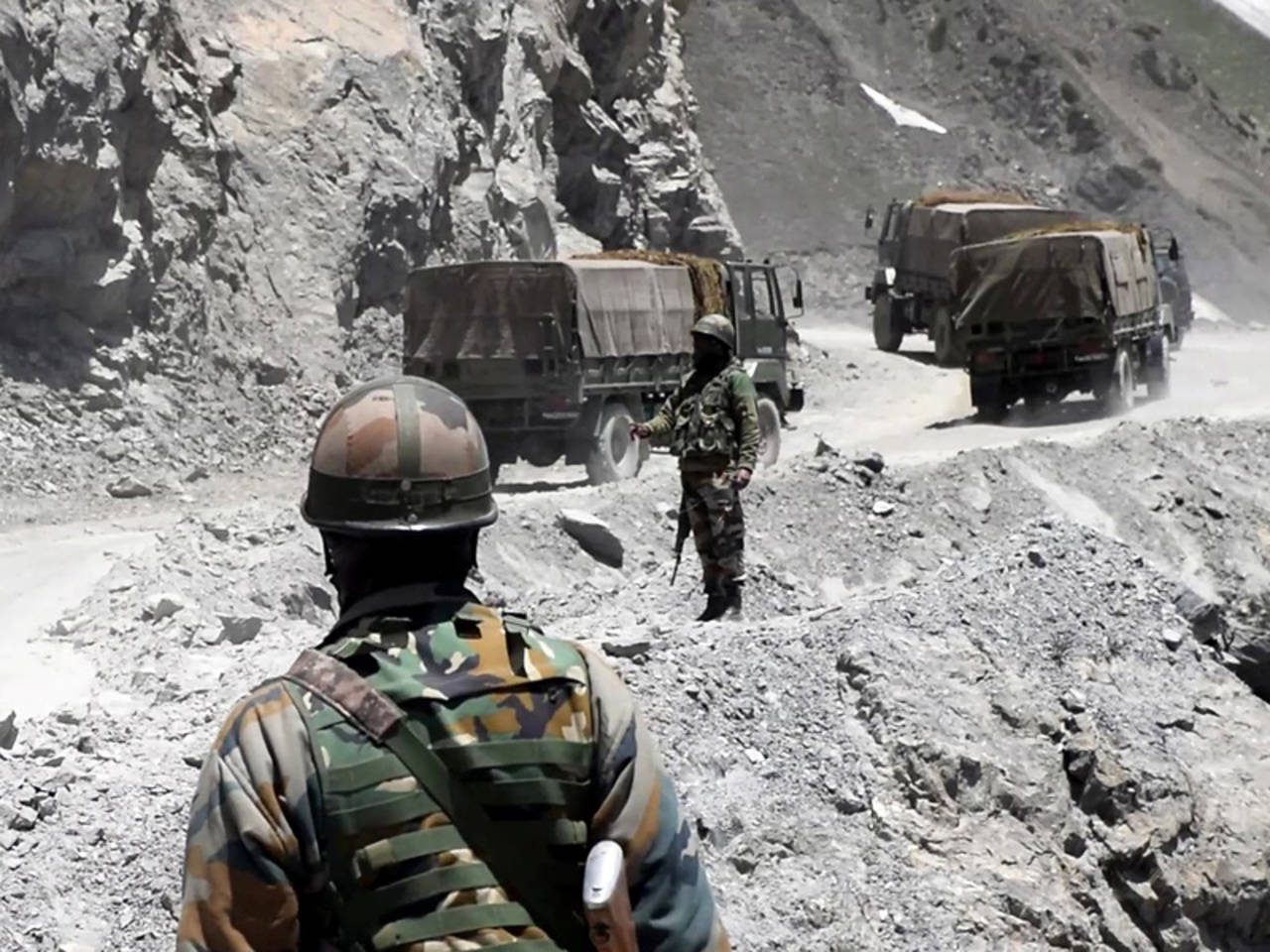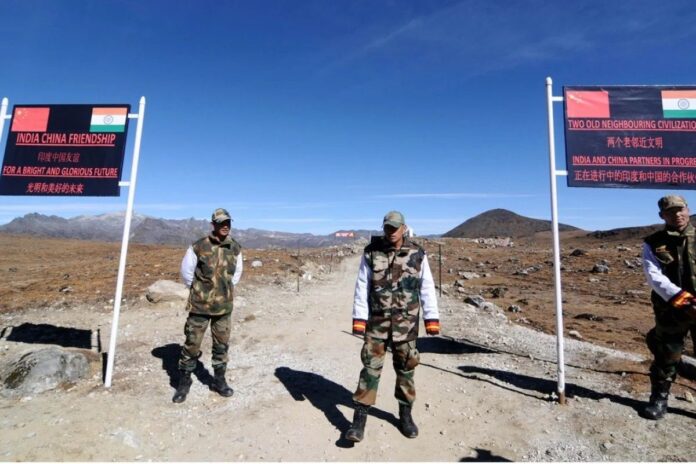In a significant development, India and China conducted Major General-level talks on Tuesday at the Daulat Beg Oldie (DBO) sector with the aim of resolving their ongoing military standoff. This face-to-face dialogue between Major Generals from both nations held great importance as it addressed the issues that have strained bilateral relations over the past three years. The talks were specifically focused on finding a resolution to the persistent challenges faced by both sides in the DBO sector, according to defense sources cited by India Today.
The meeting was particularly crucial due to its timing, just prior to the Shanghai Cooperation Organisation (SCO) Defence Ministers’ meeting. Chinese Defense Minister Li Shangfu’s participation in the SCO meeting further emphasized the significance of the discussions between India and China at the DBO sector. The engagement at this level showcased the commitment of both nations to resolving their differences and finding common ground on contentious matters.
Nations’ Top Military Officials Convene in Critical Talks, Paving the Path to Easing Tensions and Achieving Mutual Understanding
Heading the Indian delegation was Lieutenant General Rashim Bali, while an officer of the same rank led the talks from the Chinese side, representing the local theatre command. Both sides demonstrated their intent to engage in a productive dialogue, indicating their shared desire to de-escalate tensions and achieve lasting solutions.
The talks encompassed various aspects, including de-escalation measures and addressing legacy issues, such as the Depsang plains and Demchok. It is worth noting that throughout the previous rounds of talks, India and China have made progress in resolving some of the issues that were previously discussed. These incremental steps toward resolving key points of contention reflect the commitment of both nations to finding a peaceful resolution.
While the discussions aimed to de-escalate tensions and seek common ground, it is important to highlight the ongoing efforts made by India and China to strengthen their respective positions along the high mountainous borders. Both countries have been heavily investing in infrastructure development in these regions, which further underscores the significance of finding a mutually agreeable resolution.
Finding Middle Ground: High-Stakes Discussions Held to Ease Tensions and Promote Peace
The sustained engagement between India and China demonstrates their recognition of the need for peaceful coexistence and their willingness to address their differences through dialogue. These talks represent a positive step toward establishing stability and fostering constructive relations between the two nations.
The Daulat Beg Oldie sector holds strategic importance for both India and China. Resolving the standoff in this region would contribute to overall stability along the Line of Actual Control (LAC) and promote greater cooperation between the two countries.
Critical Talks at Daulat Beg Oldie: India and China Strive to Resolve Standoff and Rebuild Trust
The diplomatic efforts exhibited by India and China extend beyond the talks held in the DBO sector. The recent participation of Chinese Defense Minister Li Shangfu in the SCO Defence Ministers’ meeting further highlights the commitment of both nations to engage in multilateral forums and find common ground on various issues.
The significance of these talks lies not only in their immediate impact but also in the potential for building trust and fostering long-term cooperation between India and China. By addressing contentious matters through diplomatic means, both nations aim to establish a strong foundation for peaceful coexistence, which would have far-reaching implications for regional stability.
India and China recently engaged in a highly significant development as they conducted Major General-level talks at the Daulat Beg Oldie (DBO) sector in an earnest attempt to resolve the long-standing military standoff. This direct and open dialogue between Major Generals from both nations holds immense importance, as it seeks to address the issues that have strained bilateral relations over the past three years. With a specific focus on finding a resolution to the persistent challenges faced by both sides in the DBO sector, the talks signify a renewed commitment to de-escalate tensions and forge a path towards amicable solutions.
The timing of this meeting was particularly crucial, taking place just prior to the Shanghai Cooperation Organisation (SCO) Defence Ministers’ meeting. The participation of Chinese Defense Minister Li Shangfu in the SCO meeting further underscores the significance of the discussions between India and China at the DBO sector. This level of engagement demonstrates the shared commitment of both nations to overcome their differences and find common ground on contentious matters.
Leading the Indian delegation was Lieutenant General Rashim Bali, while the Chinese side was represented by an officer of the same rank from the local theatre command. This balanced representation highlighted the seriousness and commitment of both parties in pursuing constructive dialogue to address the ongoing standoff. By engaging directly at the Major General level, India and China conveyed their intent to resolve the tensions and achieve lasting solutions that would benefit both nations.
The talks encompassed a wide range of aspects, including de-escalation measures and addressing legacy issues such as the Depsang plains and Demchok. It is worth noting that previous rounds of talks have yielded some progress in resolving issues that were previously discussed. These incremental steps toward resolution reflect the mutual willingness of India and China to find common ground and navigate through the complexities of the situation.
While the primary objective of the discussions was to de-escalate tensions and seek mutually agreeable solutions, it is important to acknowledge the ongoing efforts made by both India and China to bolster their respective positions along the high mountainous borders. Recognizing the strategic importance of these regions, both nations have invested significantly in infrastructure development. This emphasis on infrastructure further underscores the need to find a sustainable and mutually acceptable resolution to the standoff.
The sustained engagement between India and China exemplifies their shared recognition of the imperative for peaceful coexistence and their commitment to address their differences through diplomatic channels. These talks signify a positive step forward in establishing stability and fostering constructive relations between the two nations.
The Daulat Beg Oldie sector holds significant strategic importance for both India and China, as resolving the standoff in this region would contribute to overall stability along the Line of Actual Control (LAC). By working towards finding a resolution in this critical sector, both nations aim to create an environment of trust and cooperation that extends beyond the immediate standoff, with potential long-term benefits for regional peace and stability.
It is noteworthy that the diplomatic efforts displayed by India and China extend beyond the talks held in the DBO sector. The recent participation of Chinese Defense Minister Li Shangfu in the SCO Defence Ministers’ meeting further emphasizes the commitment of both nations to engage in multilateral forums and seek common ground on various issues. This multilateral engagement reflects a broader approach to diplomacy and highlights the willingness of both nations to find comprehensive and mutually beneficial solutions.
The significance of these talks extends beyond their immediate impact, as they have the potential to build trust and foster long-term cooperation between India and China. By addressing contentious matters through diplomatic means, both nations aim to establish a strong foundation for peaceful coexistence, which would have far-reaching implications for regional stability.
In conclusion, the Major General-level talks between India and China at the Daulat Beg Oldie sector mark a significant milestone in their efforts to resolve the long-standing standoff. These talks demonstrate a renewed commitment to address the challenges and find common


